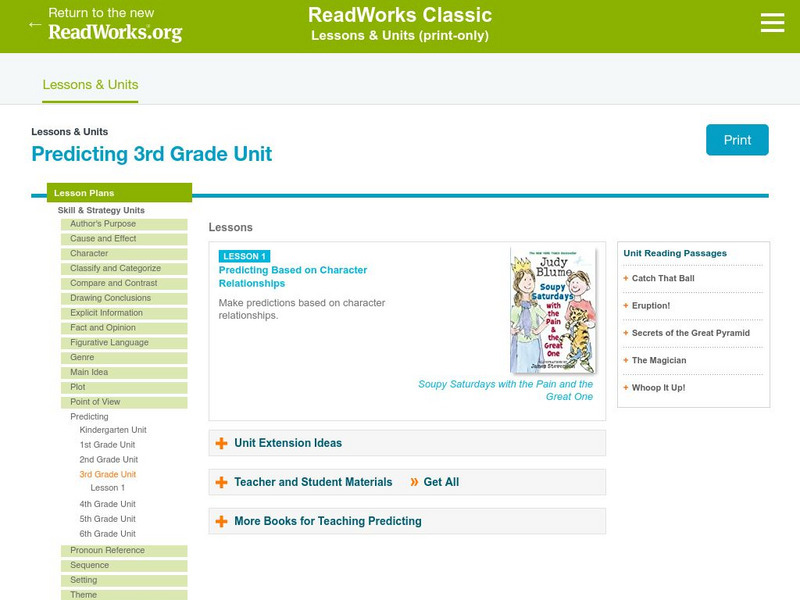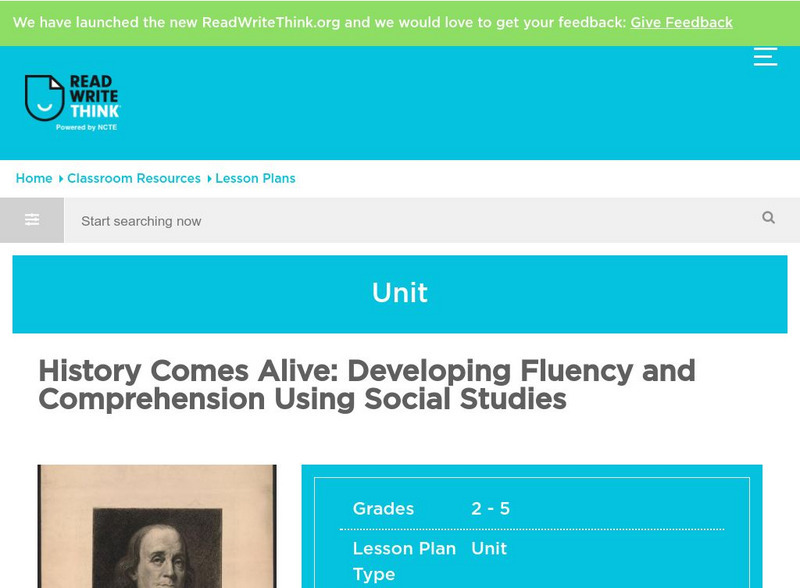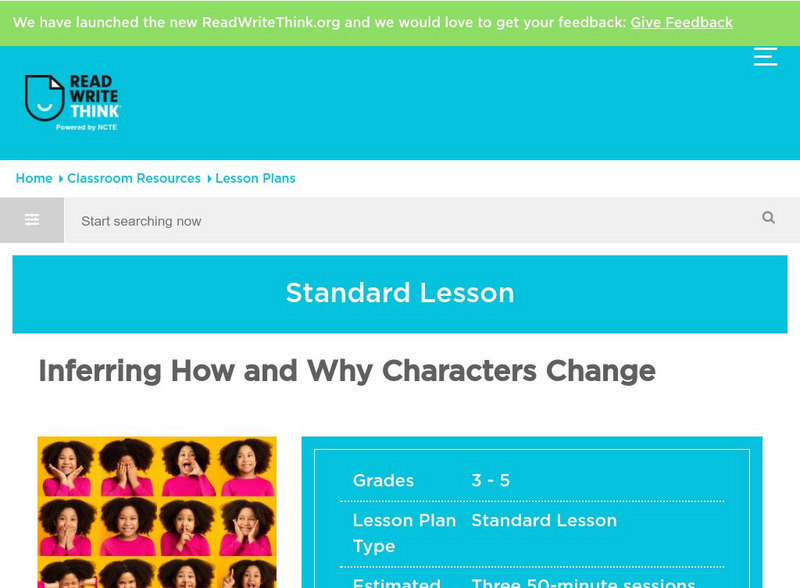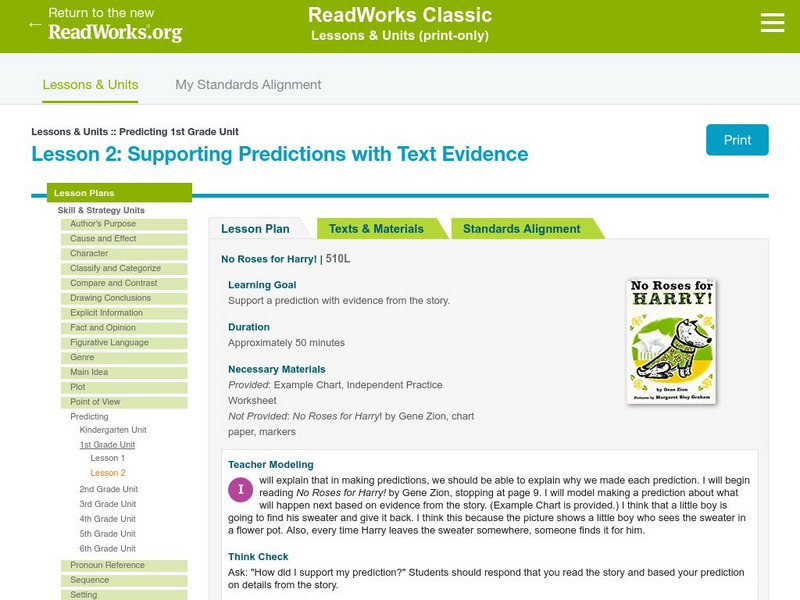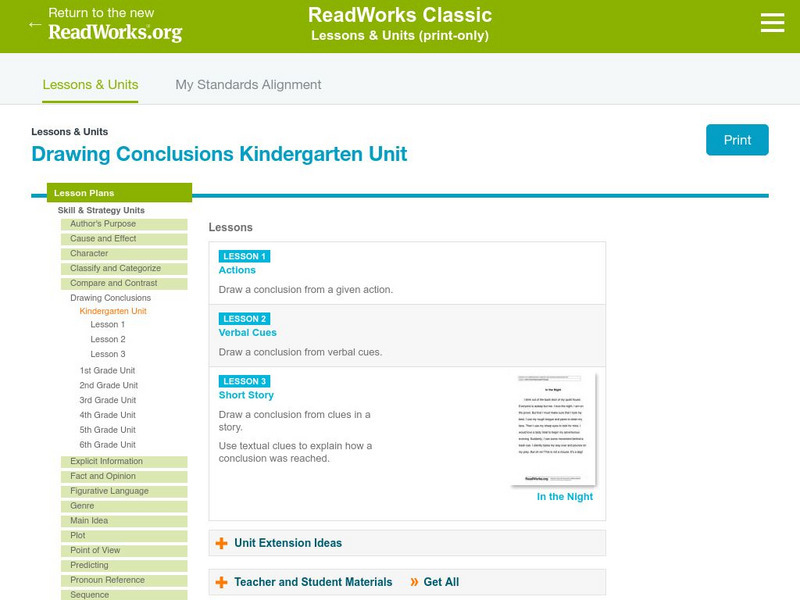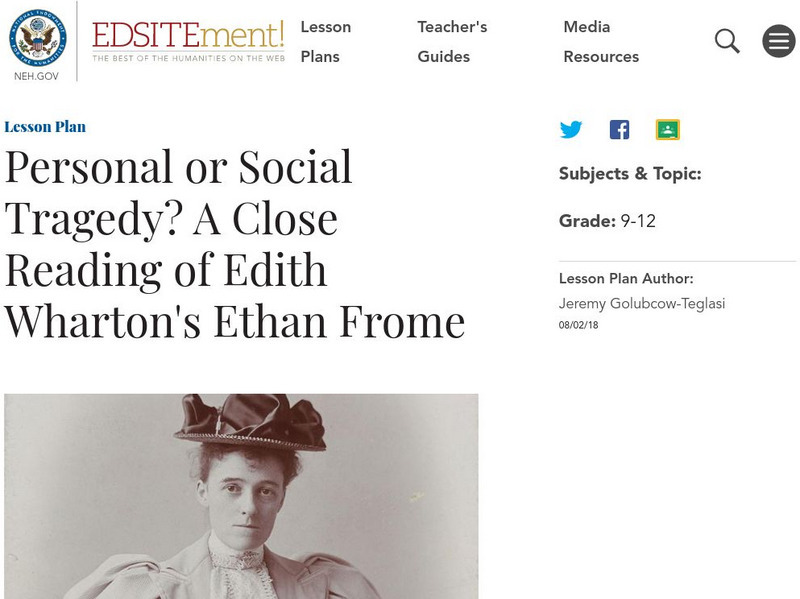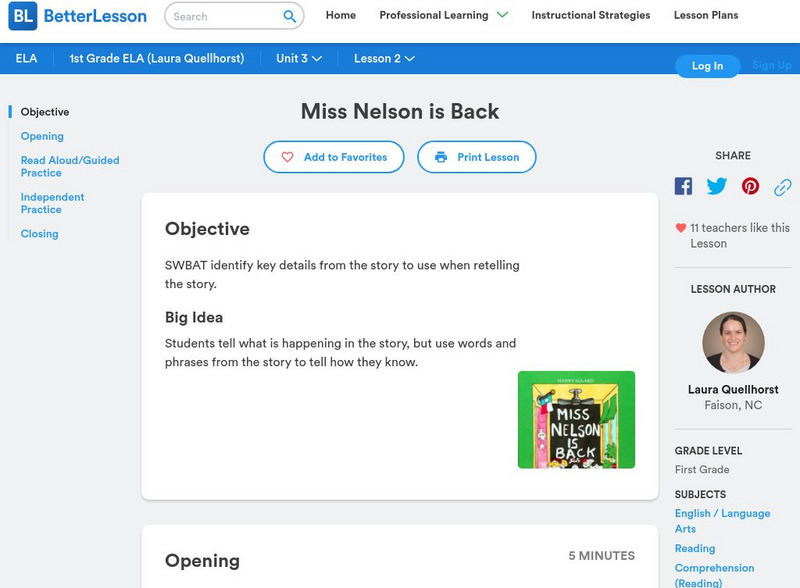Curated OER
Social Studies: How Did Native Americans Live?
Fifth graders examine Edward Curtis' photographs and Robert Griffing's paintings to analyze Native American culture. They present research information on specific tribes, using the photos and paintings to uncover information about the...
Curated OER
Language Arts- Word Origins
Sixth graders locate, access, and select appropriate information from a variety of resources, including electronic sources. They analyze the audience and purpose of the task to make decisions about content and format.
Curated OER
Rock Art and Ritual
Students explore, examine and determine what kinds of rock art motifs are likely the product of ancient ritual descent. They identify connections between rock art symbolism and Native American ritual practices. Each student also views a...
Folger Shakespeare Library
Folger Shakespeare Library: Pre Reading Romeo and Juliet
This site shares a two-day lesson that will help students prepare for reading Romeo and Juliet. Students will read and perform the prologue of Romeo and Juliet and engage in the analysis of the play's meaning, get to know the style and...
Better Lesson
Better Lesson: Introduction to Making Predictions and Inferences
First graders will engage in a shared reading of "Mr. C's Dinner" so that we can build a foundation for understanding what it takes to make good predictions and inferences.
Better Lesson
Better Lesson: Using Word and Picture Clues to Make an Inference
First graders will use text evidence to make inferences about word and word phrase meanings in a text. Word and picture clues will be used to help students form inferences.
TES Global
Tes: Coraline 5 Reading Assessment
[Free Registration/Login Required] This lesson plan provides a way to assess students' understanding of inferences about the traits of characters in the Neil Gaiman's novel Coraline.
Florida Center for Reading Research
Florida Center for Reading Research: Text Analysis: Incredible Inferences [Pdf]
A lesson plan in which students play a game to cover words on a game board by making inferences. Materials are included.
Florida Center for Reading Research
Florida Center for Reading Research: Text Analysis: Inference Innovations [Pdf]
A lesson plan in which learners read a text and use a graphic organizer to make inferences. Materials are included.
Florida Center for Reading Research
Florida Center for Reading Research: Text Analysis: Incredible Inferences [Pdf]
A lesson plan in which students play a game by covering places on a board while making inferences. Materials are included.
Read Works
Read Works: Predicting 1st Grade Unit
[Free Registration/Login Required] A two-lesson unit designed to teach students to make predictions and support them with details from the text. Lessons are based on the books Wemberly Worried by Kevin Henkes and No Roses for Harry! by...
Read Works
Read Works: Drawing Conclusions 3rd Grade Unit
[Free Registration/Login Required] A two-instructional activity unit on drawing conclusions through which students learn how to recognize the difference between implicit information and drawing conclusions. Students also learn to draw...
Read Works
Read Works: Predicting 3rd Grade Unit
[Free Registration/Login Required] This is a lesson plan designed to teach students to make predictions based on relationships between characters. The lesson plan is based on the book Soupy Saturdays with the Pain and the Great One by...
Read Works
Read Works: Fourth Grade: One Lesson Unit: Drawing Conclusions
[Free Registration/Login Required] Students are guided through a lesson to understand the difference between explicit information and conclusions drawn from a text. With free login, users have access to passages used in this lesson.
Read Works
Read Works: Grade 1: Three Lesson Unit: Character: Actions, Feelings, Looks
[Free Registration/Login Required] A series of three lesson plans, based on David Shannon's books No, David!, David Gets in Trouble, and David Goes to School. Students learn how to utilize text and picture clues to determine and describe...
ReadWriteThink
Read Write Think: History Comes Alive: Developing Fluency and Comprehension
Let the power of imagination and inference serve as a "time machine" to bring Benjamin Franklin into the classroom! History and science come to life in a dialogue with Franklin the inventor, developed through lesson activities that...
ReadWriteThink
Read Write Think: Background for the Graphic Novel Persepolis: A Web Quest on Iran
This lesson focuses on students researching and learning about Iran's culture, society, and leadership before and after the 1979 Revolution in preparation for reading the graphic novel Persepolis. Students work in small groups to...
ReadWriteThink
Read Write Think: How and Why Characters Change
This lesson plan examines and makes inferences into the change and development in characters. Included in the lesson plan is an overview, practice, objectives, resources, preparation, and more.
Read Works
Read Works: 1st Grade Unit: Supporting Predictions
[Free Registration/Login Required] A lesson utilizing the book No Roses for Harry! by Gene Zionin in which students make a prediction and then support it with details from the text. Ideas for direct teaching, guided practice, and...
Read Works
Read Works: Kindergarten: Three Lesson Unit: Drawing Conclusions
[Free Registration/Login Required] Three lessons designed to introduce young learners and beginning readers to the concept of drawing conclusions based on actions performed in a charades game, on verbal cues given in a guessing game, and...
PBS
Pbs Learning Media: Walmart Middle School Litercy Initiative
Interactive, student-paced lessons on such literacy skills as categorizing, comparing and contrasting, summarizing, evaluating, determining cause and effect, using text features, connecting, inferring, sequencing, understanding problems...
PBS
Pbs Learning Media: Molly of Denali: Dream Tube Lesson Plan
Use this comprehensive lesson as part of a comprehensive literacy, STEM, or social studies unit in which children will be using informational texts. In the "Dream Tube" animated story from the PBS Kids series Molly of Denali, Molly and...
National Endowment for the Humanities
Neh: Edsit Ement: Personal or Social Tragedy? Edith Wharton's Ethan Frome
This lesson will challenge students to weigh the textual evidence for and against the claim that Ethan's woes lay in staying in Starkfield-and not in the details of his personal relationships. In the process, students will close read...
Better Lesson
Better Lesson: Miss Nelson Is Back
First graders tell what is happening in the story, but use words and phrases from the story to tell how they know.



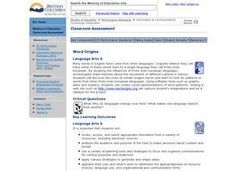

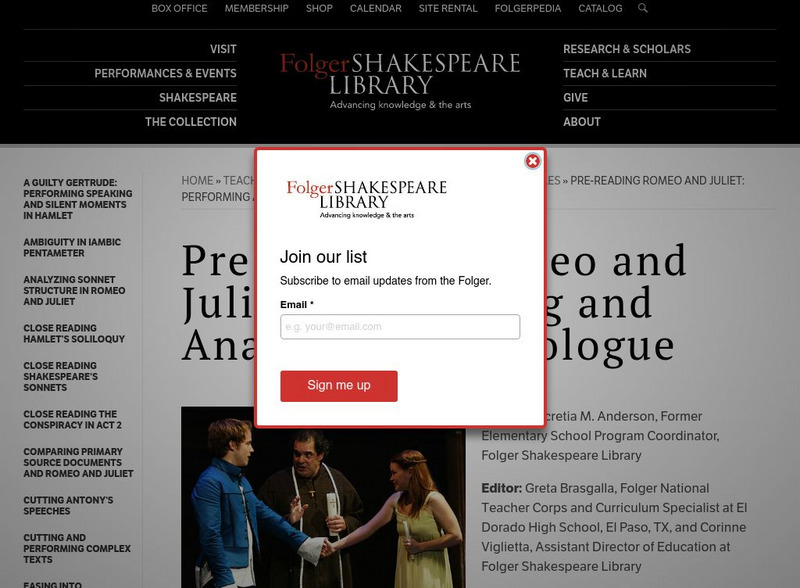



![Florida Center for Reading Research: Text Analysis: Incredible Inferences [Pdf] Lesson Plan Florida Center for Reading Research: Text Analysis: Incredible Inferences [Pdf] Lesson Plan](https://content.lessonplanet.com/knovation/original/509092-1f8464bfd22060486a7ced8fa8c4310e.jpg?1661786985)
![Florida Center for Reading Research: Text Analysis: Inference Innovations [Pdf] Lesson Plan Florida Center for Reading Research: Text Analysis: Inference Innovations [Pdf] Lesson Plan](https://content.lessonplanet.com/knovation/original/509090-40e85c5bfbfa31dce3d470a549282f99.jpg?1661786988)
![Florida Center for Reading Research: Text Analysis: Incredible Inferences [Pdf] Lesson Plan Florida Center for Reading Research: Text Analysis: Incredible Inferences [Pdf] Lesson Plan](https://content.lessonplanet.com/knovation/original/509101-bb8c554899d4d9c53e422b2a416a2b4c.jpg?1661786972)


